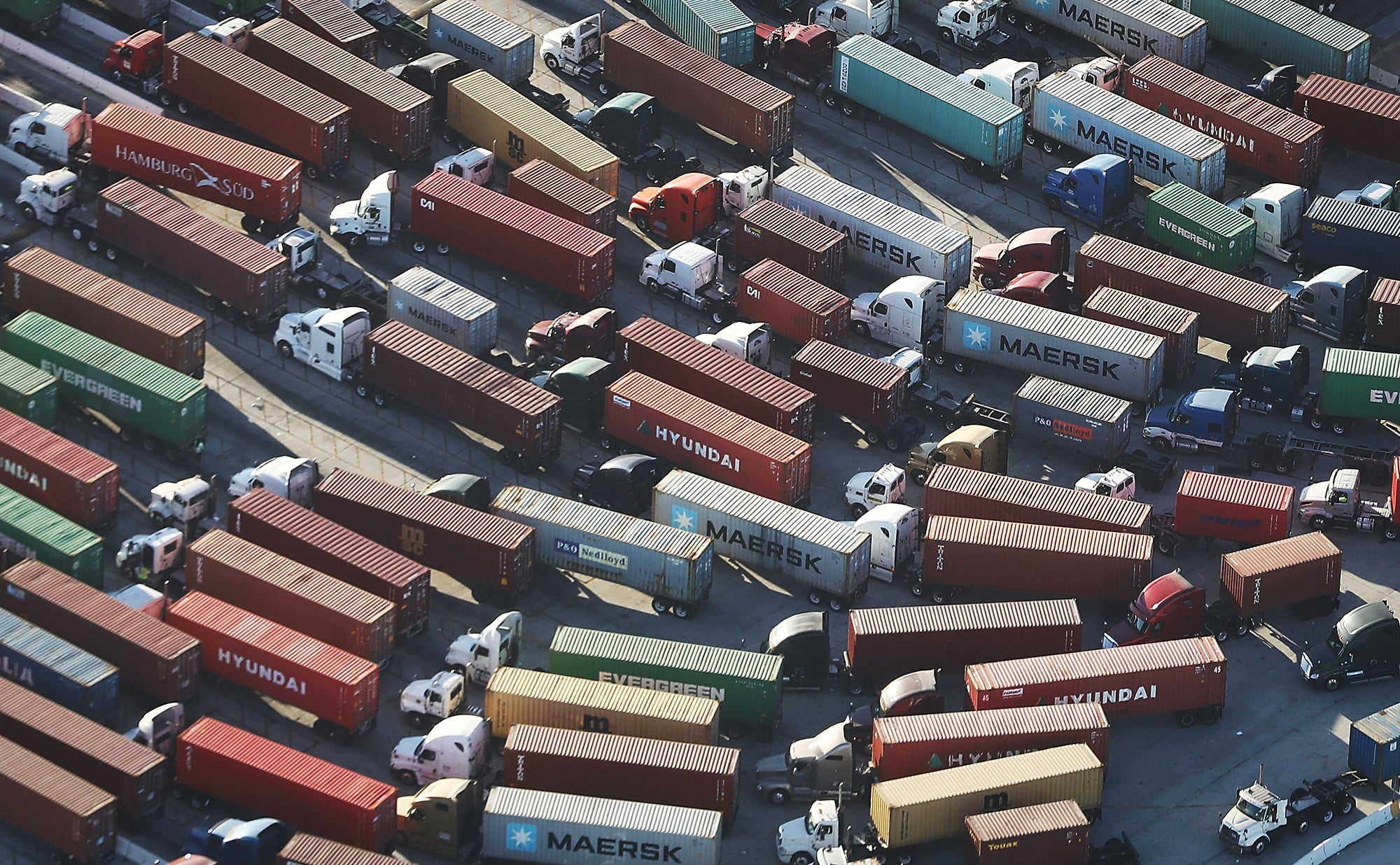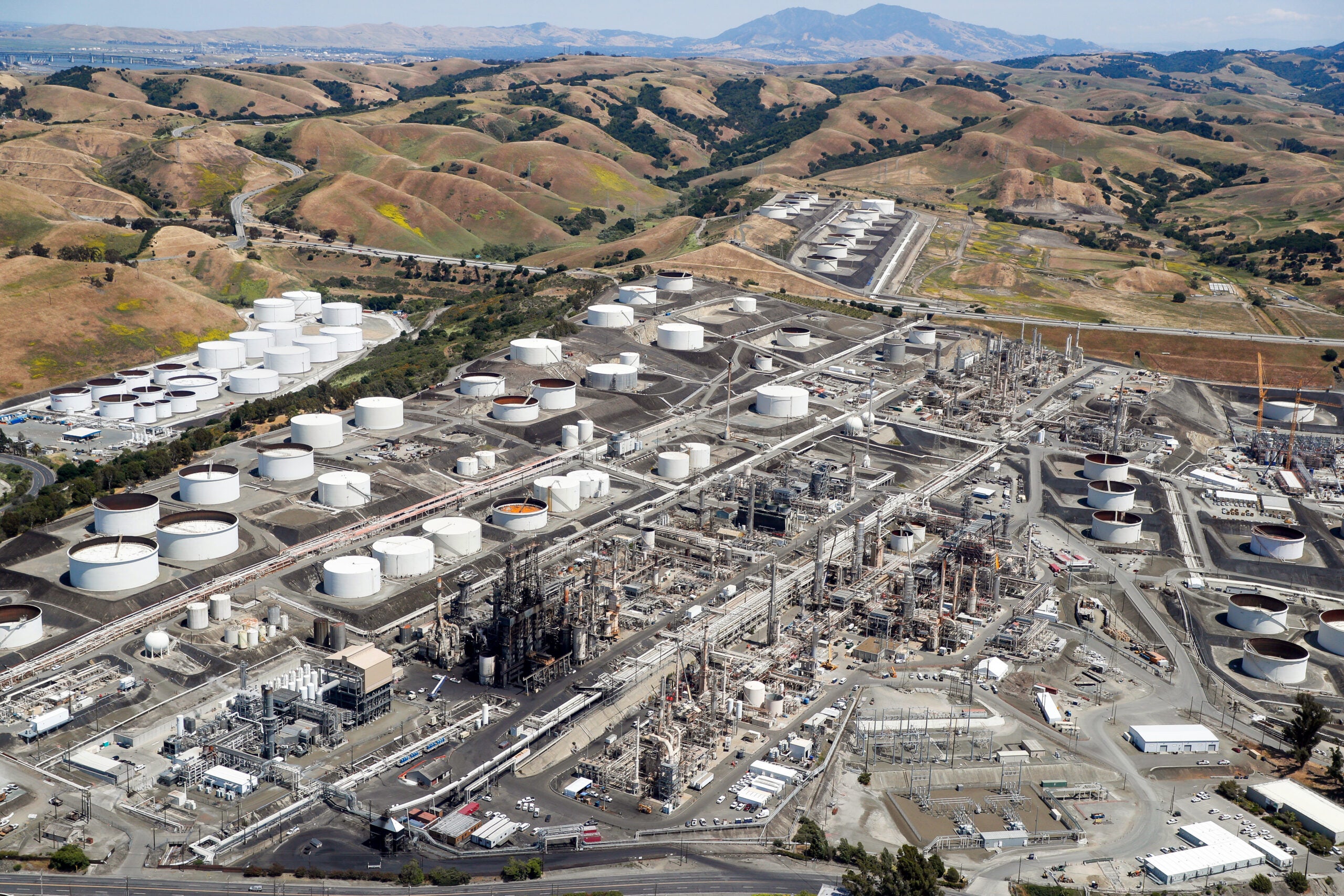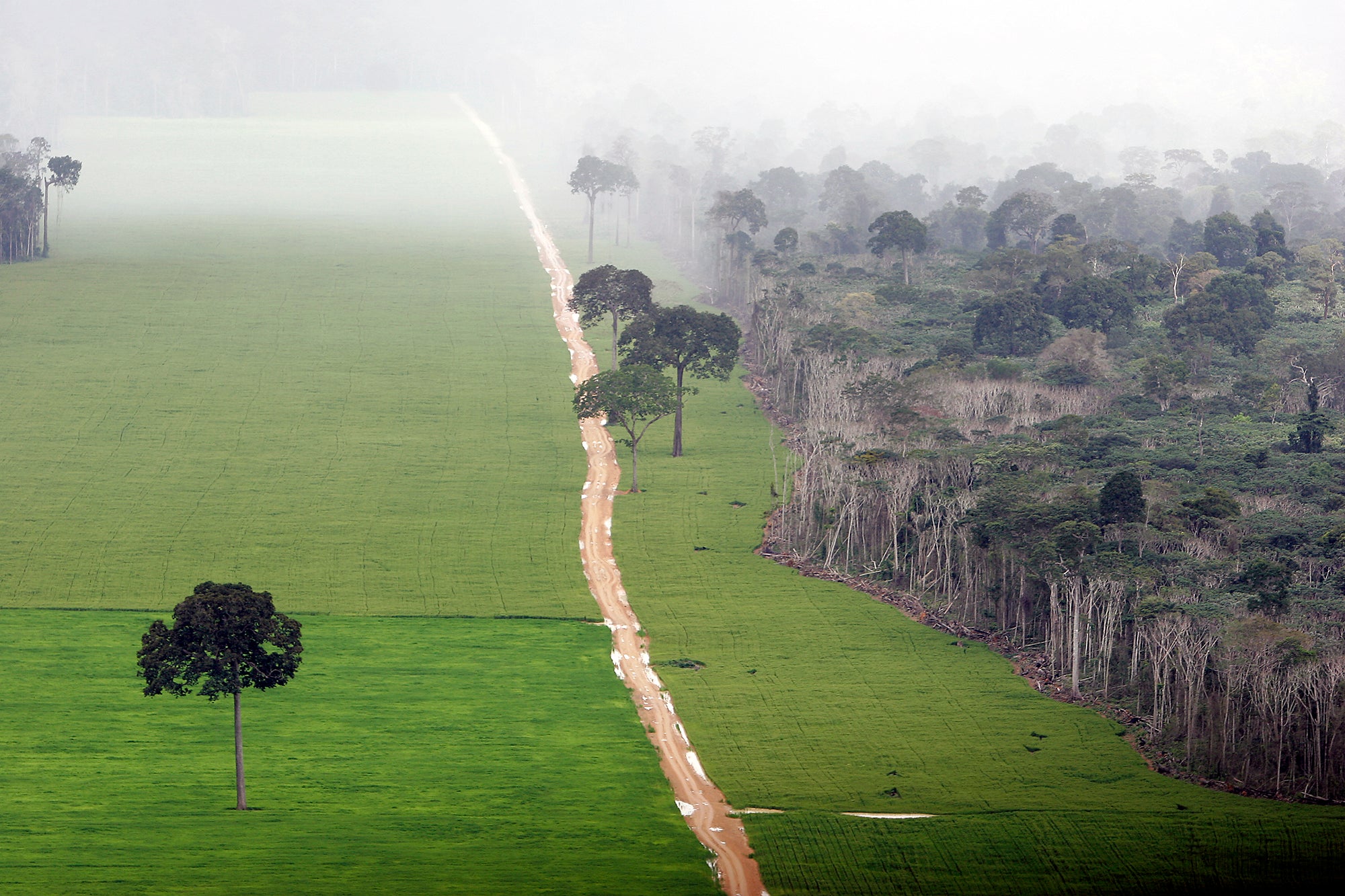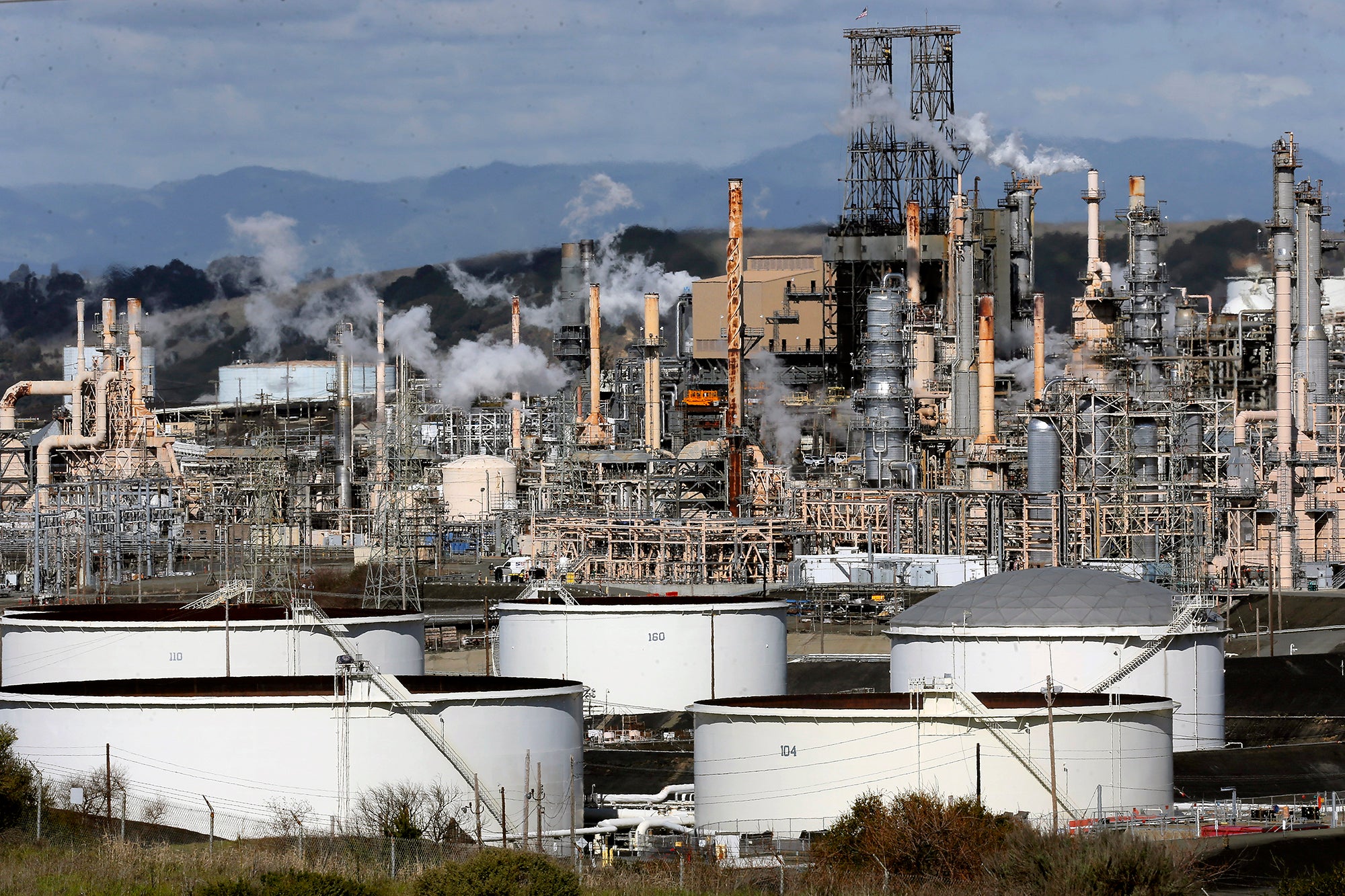Environmental Justice Group Sues California Agency Over Flawed Low Carbon Fuel Standard Changes
The changes would waste billions on polluting fuels over the next decade while harming refinery communities and dirtying California’s air
Contact
Today, Communities for a Better Environment (CBE) filed a lawsuit over the flawed environmental review for the Low Carbon Fuel Standard (LCFS) amendments approved in a contentious hearing in November. Earthjustice is representing the environmental justice group in court. Established in 2009 and administered by the California Air Resources Board (CARB), the Low Carbon Fuel Standard program generates billions of dollars in annual subsidies that are supposed to go to transportation fuels that lower greenhouse gas emissions. Unfortunately, entrenched interests have crowded the program with polluting biofuels that take the bulk of the program’s revenues away from zero-emissions options.
“The LCFS amendments reward polluters and foul our air. The changes lock in billions for biofuels refined in the East Bay and Los Angeles and burned throughout the state, and CARB failed to inform the public about these impacts,” said Nina Robertson, senior attorney on Earthjustice’s Right To Zero campaign. “CARB violated one of California’s bedrock environmental laws when it brushed the pollution harms under the rug and ignored the science showing cleaner alternatives are both possible and necessary.”

Trucks haul shipping containers at the Port of Los Angeles. When diesel trucks burn biofuels like renewable diesel, which is eating up the largest share of funds in the Low Carbon Fuel Standard, these heavy-duty trucks pollute California’s air.
(Getty Images)
Biofuels are combustion fuels made from made from plants like soy and corn. As opposed to zero-emissions transportation technology, they pollute the air both when they’re processed in refineries and when they’re burned as fuel in vehicles. The conversion of refineries to biofuels is a lifeline for Big Oil, extending the life of refineries that should be shut down as we transition to clean energy. Biofuels can be just as polluting as fossil fuels, and in some cases can be even worse. Biofuel refining releases significantly greater amounts of certain hazardous air pollutants than oil refineries — including carcinogens like formaldehyde. Communities like Martinez, Rodeo, and Paramount bear the brunt of this pollution. The Phillips 66 refinery in the East Bay is the largest biofuels refinery in the world, according to the company’s materials.

An aerial view of the Phillips 66 San Francisco Refinery in Rodeo, California. (Brandon Sloter / Getty Images)
“People who live near refineries in California are harmed by the spiraling expansion of polluting biofuels,” said Katherine Ramos, NorCal Program Co-Director at Communities for a Better Environment. “Yet CARB failed to analyze the harms that its changes to the LCFS will have on these communities. CARB also failed to take a hard look at clean alternatives to biofuels, which we know the climate and our lungs need. Refinery communities and all Californians deserve more from the California Air Resources Board.”
Scientists have been ringing the alarm that biofuels in particular risk deforestation of habitats vital to the climate, and that these fuels make food increasingly unaffordable for the world’s poorest people due to increased food prices that result from diverting crops from food to fuel production. Prominent scientists who study the LCFS at institutions like Stanford, UC Davis, and other universities urged CARB to change course.
CARB’s own 2014 analysis of biofuels in the LCFS acknowledges that “[t]his diversion of agricultural land to biofuel production will exert an upward pressure on food commodity prices, and potentially lead to food shortages, increasing food price volatility, and inability of the world’s poorest people to purchase adequate quantities of food.” These risks are why countries around the world with clean fuels programs such as Germany cap the amount of biofuels in their programs. Meanwhile, California is allowing a spiraling expansion of credits for biofuels, especially renewable diesel, in the multibillion-dollar program.

A soy plantation in a deforested section of the Amazon rainforest near Santarem, Brazil. The growing of soybeans for biofuels is causing massive deforestation. (Ricardo Beliel / Brazil Photos/LightRocket via Getty Images)
These amendments to the Low Carbon Fuel Standard amount to a critical missed opportunity to focus funding on accelerating zero-emissions transportation in the state, which would be better both for protecting the climate and the air Californians breathe. Transportation is California’s most polluting sector.
The California Air Resources Board violated the California Environmental Quality Act when it failed to meaningfully incorporate scientific evidence of environmental and health harms in its amendments to the program. Environmental groups seek to remedy this by sending the agency back to the drawing board to redo their analysis and ultimately enact meaningful limits on harmful biofuels and other polluting fuels and grow support for zero-emissions solutions.
A coalition of environmental groups filed a second, separate lawsuit against CARB on the Low Carbon Fuel Standard over the flawed environmental review for billions in subsidies for factory farm biogas.

Additional Resources
About Earthjustice
Earthjustice is the premier nonprofit environmental law organization. We wield the power of law and the strength of partnership to protect people's health, to preserve magnificent places and wildlife, to advance clean energy, and to combat climate change. We are here because the earth needs a good lawyer.